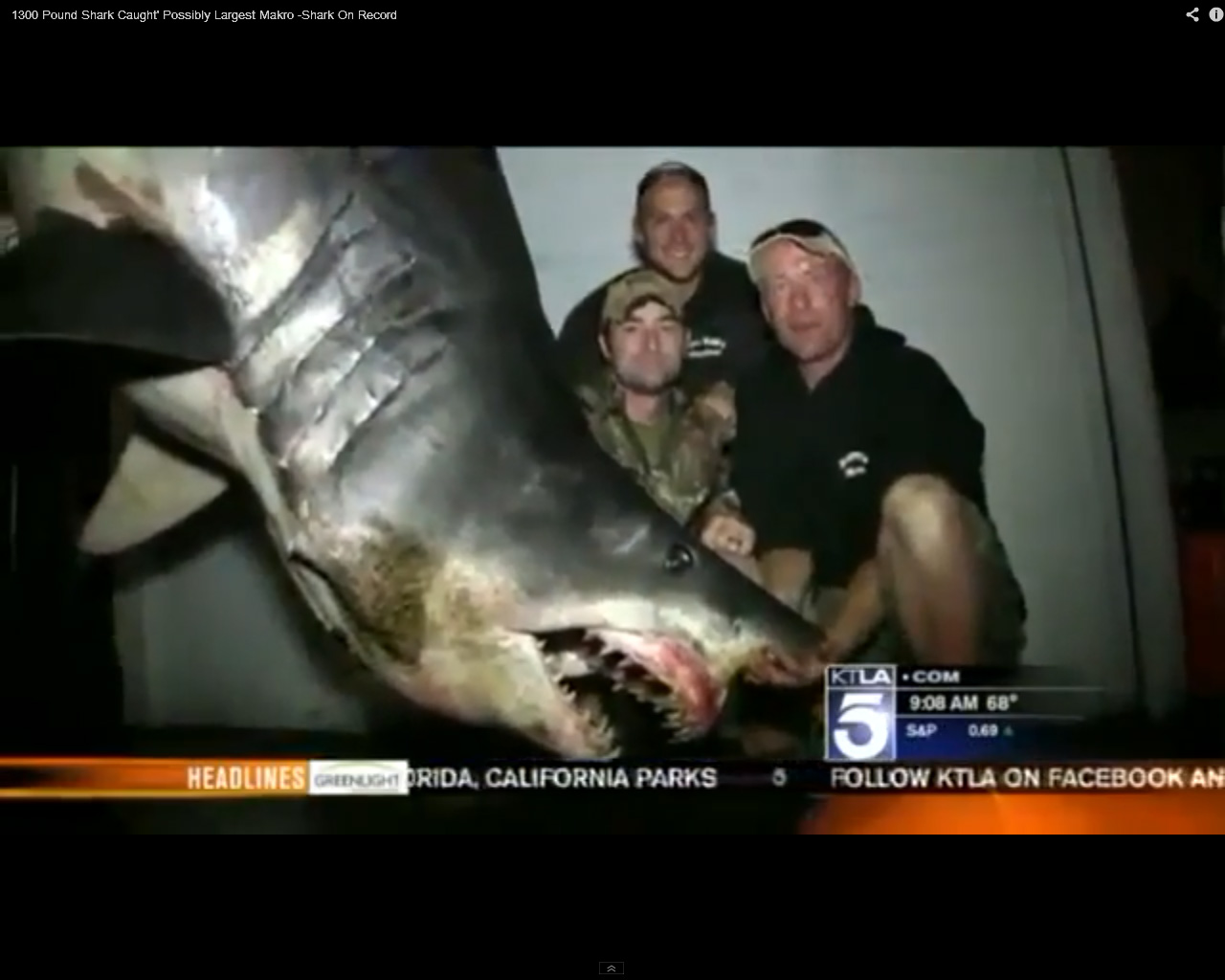Is This the World's Largest Mako Shark?

Fishermen off the coast of Southern California may have landed what might be the world's largest known shortfin mako shark.
The group of sport fishermen reeled in the 1,323-lb. (600 kg), 12-foot (3.7 meters) mako shark off the coast of Huntington Beach on Monday (June 3), according to the Los Angeles Times.
The struggle to land the massive shark lasted about 2 1/2 hours; fisherman Jason Johnston of Mesquite, Texas, wore a harness attached to the boat to keep from getting pulled into the ocean. [On the Brink: A Gallery of Wild Sharks]
"It's unreal. This thing is definitely a killing machine," Johnston told KTLA. “Any wrong step and I could have went out of the boat and to the bottom of the ocean."
"I still feel the soreness in every bone," Johnston told the Times. "It's the scariest thing I've ever done in my life."
A very fast shark
The shortfin mako (Isurus oxyrinchus) is one of the fastest sharks known, capable of reaching speeds up to 46 mph (74 km/h), and is also one of the few sharks that are endothermic, or capable of generating their own body heat.
Sign up for the Live Science daily newsletter now
Get the world’s most fascinating discoveries delivered straight to your inbox.
Additionally, makos are "obligate ram ventilators," a type of shark that must keep swimming to move water over its gills or it will die from lack of oxygen. Great whites and whale sharks are also obligate ram ventilators.
Researchers believe a shortfin mako shark caught off the shores of Turkey in the late 1950s was 19-foot (5.9 m) long, making it the longest ever caught.
Sharks threatened worldwide
Not everyone is enthralled, however, by the recent California mako shark catch, which was filmed for an Outdoor Channel reality television series.
"These kind of reality shows are not reality. The reality is we're overfishing sharks and this macho big-game attitude should be a relic of the past," David McGuire, director of Shark Stewards, a shark conservation group, told the Times.
"People should be viewing these sharks as wonderful animals that are important to the ocean and admiring how beautiful they are, McGuire said, not "spilling their blood and guts."
The captain of the fishing boat that hauled in the mako, Matt Potter, insists the catch of a single mako isn't an environmental problem.
"The state limit for mako is two per person per day," Potter told the Times. "We only kept one mako for a total of 18 passengers out there three days." The other sharks caught were released, Potter said.
Researchers estimate that worldwide, one-third of sharks, rays and skates are threatened with extinction. Overfishing by commercial fishing fleets is a prominent threat to shark populations, as is shark finning, removal of a shark's dorsal fin for shark fin soup.
Sharks are apex predators that help balance ecosystems throughout the world's oceans. Because they have slow growth and reproductive rates — shortfin mako sharks breed once every three years on average — their populations can't recover from significant losses.
Follow Marc Lallanilla on Twitter and Google+. Follow us @livescience, Facebook & Google+. Original article on LiveScience.com.










